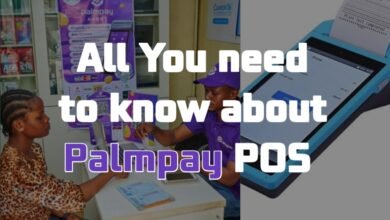If you are interested in “how to start mini Importation business from China To Nigeria” then you are not alone, there are many others with the same interest. You know, starting a mini importation business from China to Nigeria can be an exciting venture that allows you to tap into the different opportunities in e-commerce and global trade.
With the rise of online platforms and digital marketing, establishing a mini importation business has become more easy and accessible than previous years. In this guide, we’ll take you through a step-by-step process on how to begin your mini importation journey, from finding profitable products to getting the logistics of shipping and customs.
Mini importation, the process of importing small quantities of goods from overseas suppliers, has gained popularity due to its relatively low startup costs and potential for high-profit margins.
Requirements to Start a Mini Importation Business from China to Nigeria: What you need to make provisions for
Before going into to steps on starting a mini importation business from China to Nigeria, there are several key requirements that must be carefully addressed to ensure a successful venture. Let’s break down the important requirements you need to consider:
1. Market Research and Product Selection
Thoroughly research the Nigerian market to identify products with demand and potential for profitability, because Market research helps you understand consumer preferences, trends, and gaps in the market. By selecting products that align with local needs and preferences, you increase your chances of success.
2. Supplier Identification and Evaluation
Identify reliable and reputable suppliers in China who can provide the products you want to import, because supplier selection is very crucial. You have to look for suppliers with a proven track record, positive reviews, and a history of exporting to Nigeria. This minimizes the risk of dealing with unscrupulous suppliers or receiving subpar products.
3. Cost Analysis and Budgeting
You have calculate all costs associated with the business, including product costs, shipping fees, customs duties, and additional expenses. Accurate cost analysis helps you set competitive prices and determine the profitability of your products. Budgeting ensures you have the necessary funds to cover expenses throughout the importation process.
4. Understanding Import Regulations
Familiarize yourself with Nigeria’s import regulations, tariffs, and taxes for different types of products. Compliance with import regulations avoids legal issues and potential confiscation of goods. Understanding taxes and duties enables you to accurately factor them into your pricing strategy.
5. Shipping Method Selection
Choose the most suitable shipping method based on factors like shipping time, cost, and product type. Different shipping methods have varying costs and delivery times. Selecting the right method ensures timely product availability and efficient cost management.
6. Order Placement and Communication
Effectively communicate with the chosen supplier to place orders and ensure clear communication throughout the process. Clear communication minimizes misunderstandings and ensures that your supplier understands your requirements. Regular updates and confirmation of details are essential for a smooth transaction.
7. Customs Clearance and Documentation
Prepare all necessary documentation for customs clearance, including invoices, permits, and shipping documents. Proper documentation is critical for smooth customs clearance. Incomplete or inaccurate paperwork can lead to delays, additional charges, and even the rejection of your goods.
8. Setting Up an Online Store
Create an online store where customers can browse and purchase your imported products. A fast online store which is good for both mobile and desktop with high-quality images and detailed product descriptions enhances the customer experience. Choose an e-commerce platform that suits your technical skills and business needs.
9. Marketing Strategy Development
You have to develop a marketing strategy to promote your products and attract customers. Effective marketing helps you reach your target audience. Utilize social media, influencer collaborations, and online advertising to generate interest and drive traffic to your online store.
10. Customer Service Management
Before starting this business you to make plans on providing excellent customer service to build trust and retain customers. Address customer inquiries promptly, resolve issues efficiently, and ensure timely order fulfillment. Positive customer experiences lead to repeat business and positive word-of-mouth.
11. Business Monitoring and Scaling
You also have to make provisions for a system to continuously monitor the performance of your business and consider scaling as it grows.You know, regularly analyze sales data, customer feedback, and market trends. Scaling might involve expanding your product range, exploring new marketing channels, or increasing your order quantities.
How To Start Mini Importation Business From China To Nigeria: Step by step guide
I know you must have known the meaning of Mini Importation business before coming to this post, so let’s get straight to the steps on how to start Mini Importation Business from China To Nigeria. We will analyze them each in a subheading, with good and perfectly detailed explanation.
Researching the Market Demand
Before going into other steps of mini importation, it’s important to research the Nigerian market thoroughly. Identify products that are in demand and have the potential to sell well. This might involve analyzing current trends, exploring online marketplaces, and understanding consumer preferences.
Selecting Profitable Niche Products
Choosing the right niche products is the cornerstone of your mini importation business. Look for products that are unique, solve a specific problem, or cater to a particular target audience. This will set you apart from the competition and attract a loyal customer base.
Identifying Reliable Suppliers in China
Finding trustworthy suppliers in China is key to the success of your venture. Utilize online platforms like Alibaba, Global Sources, and Made-in-China to connect with potential suppliers. Look for suppliers with a solid reputation, good reviews, and a history of exporting to Nigeria.
Comparing Prices and Quality
Don’t settle for the first supplier you come across. Contact multiple suppliers, request samples, and compare prices and product quality. Remember that the cheapest option may not always be the best, as quality is the main factor to customer satisfaction.
Understanding Import Regulations and Taxes
Get good knowledge for yourself on Nigeria’s import regulations, tariffs, and taxes. Certain products may be subject to restrictions or require special permits. Calculating the total cost of importing, including customs duties and taxes, is crucial for accurate pricing.
Calculating Total Costs
Starting a mini importation business involves various costs, including product costs, shipping fees, customs duties, and local transportation. Create a comprehensive spreadsheet that outlines these expenses to ensure your pricing strategy is profitable.
Choosing the Right Shipping Method
Decide on the most suitable shipping method for your business. Options include air freight, sea freight, and express courier services. Consider factors like shipping time, cost, and the nature of your products when making your choice.
Placing Your Order
Once you’ve chosen a supplier and determined your shipping method, it’s time to place your order. Clearly state your requirements to the supplier and stay in touch throughout the process to ensure a smooth transaction.
Handling Customs Clearance
Taking care of customs clearance can be a complex process in most cases, but it’s essential to ensure your goods reach Nigeria without issues. Prepare all required documentation, including invoices and import permits, and work with a reputable clearing agent if needed.
Setting Up an Online Store
In today’s digital age, setting up an online store is now very easy. Choose a user-friendly platform, create compelling product listings, and add a secure payment gateways. High-quality product images and detailed descriptions are vital to attract customers.
Creating a Marketing Strategy
Your marketing strategy will determine how well your products are received in the Nigerian market. Leverage social media, influencer partnerships, and targeted online advertising to reach potential customers. Highlight the unique selling points of your products.
Managing Customer Service
Excellent customer service is among the key factors of success. Provide prompt responses to inquiries, address customer concerns, and ensure timely order fulfillment. Happy customers are more likely to become repeat buyers and refer your business to others.
Monitoring and Scaling Your Business
Regularly monitor the performance of your business. Keep track of sales, customer feedback, and market trends. As your business gains traction, consider expanding your product range, exploring new marketing channels, and scaling your operations.
Read this: How to make money with PiggyVest
Challenges of Starting a Mini Importation Business from China to Nigeria
Every business will always has risks associated with it either big or small, while starting a mini importation business from China to Nigeria can be a lucrative business to start, it’s important to be aware of the challenges you might encounter along the way. Understanding these challenges can help you develop strategies to overcome them and ensure the success of your venture. Here are some of the key challenges you may face:
1. Quality Control and Supplier Reliability
One of the primary challenges is ensuring the quality of products you import. Some suppliers may not meet the expected standards, leading to issues like defective products or subpar materials. Additionally, supplier reliability can be a concern, as communication gaps, delays, or sudden changes in availability can disrupt your business operations.
2. Customs and Regulatory Issues
Sometimes going through customs clearance and import regulations can be complex. Delays at customs, unclear regulations, and unexpected fees or taxes can impact your supply chain and increase costs. Staying up-to-date with import rules and having proper documentation is crucial to avoid these obstacles.
3. Shipping and Logistics Challenges
Choosing the right shipping method and managing logistics effectively can be challenging. Shipping delays due to weather, congestion, or other factors can affect delivery times and customer satisfaction. Managing inventory levels to prevent stockouts while avoiding overstocking is also a delicate balance to maintain.
4. Currency Fluctuations and Exchange Rates
Currency fluctuations between the Chinese Yuan (CNY) and the Nigerian Naira (NGN) can impact your costs and profit margins. Sudden changes in exchange rates can lead to unexpected price hikes for imported goods, affecting your pricing strategy and overall profitability.
5. Competition and Market Saturation
The e-commerce landscape in Nigeria is becoming increasingly competitive. With more entrepreneurs entering the mini importation space, finding a niche and differentiating your products from competitors can be a challenge. Identifying unique value propositions and effective marketing strategies is essential to stand out.
6. Payment and Payment Gateway Issues
Facilitating payments to Chinese suppliers can sometimes be challenging due to restrictions on certain payment methods. Finding reliable and secure payment gateways that connect Nigerian customers with your online store can be crucial for a smooth transaction process.
7. Customer Trust and Satisfaction
Building trust and maintaining customer satisfaction in an online business can be difficult. Ensuring timely and accurate product deliveries, addressing customer inquiries promptly, and handling returns efficiently are all essential for building a loyal customer base.
8. Operational Scalability
As your business grows, managing increased order volumes, inventory levels, and customer inquiries can become overwhelming. Ensuring that your operational processes can scale effectively without compromising product quality or customer service is a challenge to consider.
9. Changing Market Trends
Consumer preferences and market trends can shift rapidly. Adapting to these changes and keeping your product offerings relevant and appealing requires ongoing research and a willingness to adjust your business strategy.
10. Technological and Infrastructure Constraints
In Nigeria, issues like unreliable internet connectivity and inconsistent power supply can pose challenges to managing an online store. Ensuring that you have the necessary technological infrastructure to run your business smoothly is important.
While these challenges may seem daunting, they are not insurmountable. By conducting thorough research, planning carefully, staying adaptable, and continuously learning from your experiences, you can navigate these obstacles and build a successful mini importation business that thrives in the Nigerian market.
Conclusion
Starting a mini importation business from China to Nigeria can be a rewarding endeavor with the right approach, which I believe you ha gotten from this guide. By conducting thorough research, selecting the right products, building strong supplier relationships, and focusing on customer satisfaction, you can build a successful e-commerce venture that caters to the needs of Nigerian consumers.
Frequently asked questions about Mini Importation business from China to Nigeria
Is it necessary to have a large capital to start a mini importation business?
Starting capital for a mini importation business can vary. While it’s possible to start with a relatively small amount, having a reasonable budget will give you more flexibility in product selection and marketing.
How do I ensure the quality of products from Chinese suppliers?
Buy from suppliers with good reviews and a history of exporting to Nigeria. Ordering product samples before placing a larger order can help you assess quality firsthand.
What’s the typical shipping time from China to Nigeria?
Shipping times can vary based on the shipping method chosen. Express courier services can take around 5-10 days, while sea freight might take several weeks.
Do I need to register my mini importation business in Nigeria?
Yes, it’s important to register your business with the appropriate government authorities to ensure compliance with local regulations.
Can I run my mini importation business part-time?
Absolutely. Many entrepreneurs start their mini importation businesses as a side venture and gradually scale up based on their availability and business growth.







